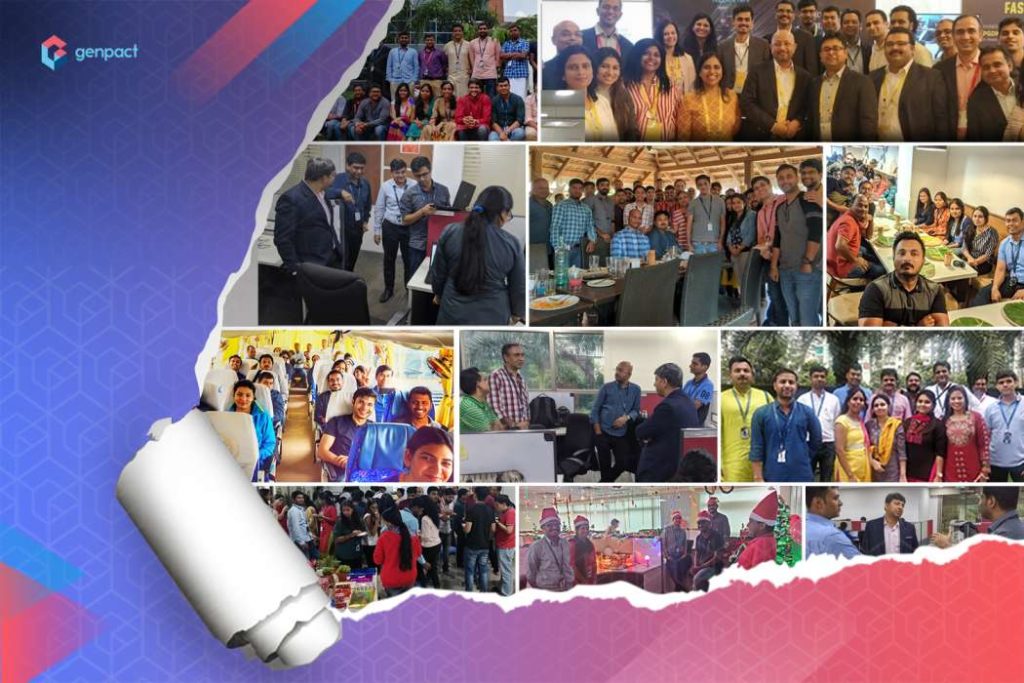With a surge in AI and ML applications to improve business process efficiencies, there has been an increase in data science hiring across companies. It is one of the fastest-growing areas and often requires a robust hiring process to get the best candidates in the team. We got in touch with Sreekanth Menon, VP, Data Science at Genpact to understand their data science hiring process. Sreekanth shares that not only their hiring mechanism looks for the best available candidate but also retains them by providing opportunities to improve their skills over time.
Data Science Skills That Genpact Looks For
Sreekanth shared that with years of experience in leveraging data analytics for solving challenges across industries and functions, Genpact has identified the most vital and useful attributes that a potential data scientist needs to have. He shared some of them as below:
- Attitude: One of the essential attributes that Genpact looks for in a potential data scientist is their attitude towards learning. They believe that being a good data scientist requires an inherent level of flexibility, curiosity, adaptability and an internal urge to explore and share knowledge.
- Analytical Mindset and Critical Thinking: While knowledge of AI/ML algorithms is one aspect of skills that data scientists should have, Sreekanth shares that to share real-world business challenges, they also need to apply this knowledge objectively to arrive at the right solutions.
- Proficiency in Mathematics and Statistics: Most AI/ML algorithms have been developed from the base of statistical and mathematical analytical tools and techniques. Having a strong grasp of the underlying concepts of these tools and techniques is essential for any data scientist.
- Competency in Coding: Proficiency in computer programming languages such as R, Python and others is a must.
- Understanding of Data Architectures: The use of AI/ML techniques in business challenges involves managing and working with large volumes of data. Understanding how data architectures work is critical to having a good grasp of the challenges involved in deploying AI/ML solutions and is one of the most important skills that Genpact looks for in potential candidates.
- Storytelling and Communication Skills: Genpact values candidates who can not only visualise the data but also tell an insightful story about what the visualisation means with respect to an organisation’s goals and outcomes.
- Business Acumen: Genpact looks for candidates with a certain level of business acumen along with technical skills. An individual must be inquisitive towards learning domain-specific dynamics so that they can apply the AI/ML techniques within the right business context.
Hiring Process At Genpact
Talking about their hiring methodology, Sreekanth shares that their hiring process focuses on identifying if the potential data science candidate fits the bill in terms of all the factors as mentioned above. Further, he shared that Genpact uses a five-step process to effectively hire the best data science candidates, which are as follows:
- Step 1: Testing – The candidates are required to undergo a series of cognitive, IQ and coding tests that are designed to evaluate their competency levels in mathematics, statistics and coding ability.
- Step 2: Business Understanding – Candidates are required to solve critical business problems and thoughtfully analyse information in a live case study that is designed to test the business acumen of the candidate.
- Step 3: – Critical Thinking – This step involves a whiteboarding exercise with experts from the Genpact data science where candidates are assessed on their critical thinking and analytical mindset.
- Step 4: Video Interviews – Genpact values domain knowledge along with technological expertise in candidates and identifies these attributes in candidates through video interviews with the subject matter experts. This step tests the candidate’s storytelling, communication skills and technical proficiency in understanding data architectures.
- Step 5: Face-To-Face Interviews – Genpact conducts face-to-face interviews of candidates with business leaders to understand if the candidate’s attitude is a good fit for their culture.
“With an 8000+ strong analytics team, Genpact has identified several best practices when it comes to hiring data scientists and data engineers. Genpact tends to look for candidates that can apply advanced algorithms in solving critical business problems. Candidates with both technical skills and domain-expertise have a higher likelihood of being able to identify opportunities where AI/ML solutions can be applied to solve real-time business challenges,” said Sreekanth.
He further added that additionally, any candidate with previous experience of working in AI/ML projects at scale is always considered to be a significant hire.
Some of the ways that Genpact hires data scientists are through referrals and recruitment drives, internal job movement, university campus hiring, internship programs, international conferences and hackathons.
Retaining Data Scientists
As mentioned earlier, retaining data scientists is an essential aspect for Genpact. Sreekanth shares that one of the best ways is to continually upskill them in line with the ongoing trends in the field. “Retaining them at low attrition rates requires that they are motivated to take up challenging tasks and continuously upskill themselves to suit the requirement of the assigned project,” he said.
He further added that they encourage their data scientists to become experts in the state-of-the-art algorithms, architectures and technologies by offering them self-paced tutorials through an in-house upskilling framework — Genome. Genome provides development opportunities for data scientists in four different dimensions — industries, service lines, digital and professional skills, adding up to more than 300 specific skills.
In addition, Genpact believes in fostering a culture of research and development and encourages data scientists to make contributions to the global learning community through technical paper publications, patent publications and participation in AI/ML conferences.
“The data science field is supply-constrained – the demand for data scientists far outstrips the current number of potential candidates. Thus, companies will need to attract the right kind of candidates by being highly proactive. With the recent COVID-19 global crisis forcing companies to take stock of their situations; many organisations realise the significance of skilled data scientists in enabling faster data-driven decision-making. It seems likely that the demand for talented data scientists will only increase in the near future as businesses across the globe look to deploy advanced analytics, AI and ML solutions across their value streams,” said Sreekanth on a concluding note.

























